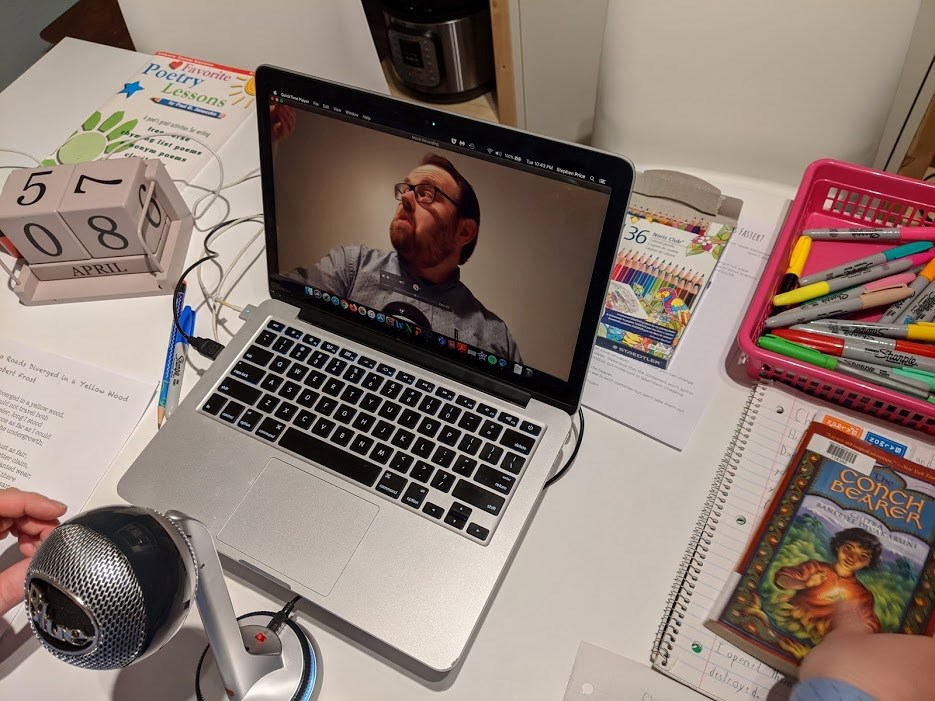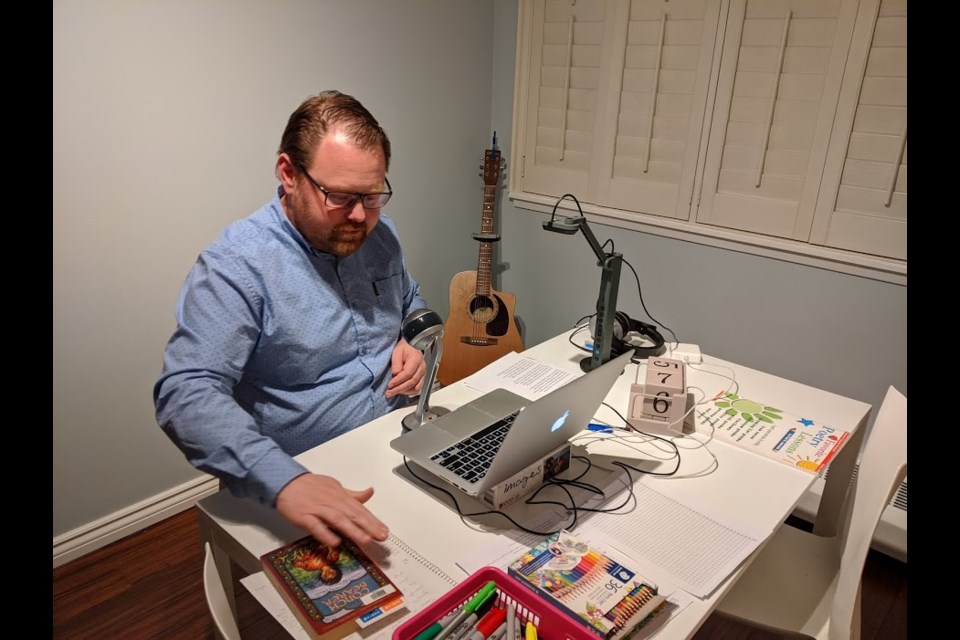“Goooooooood Morning, Eagle Harbour!”
That’s West Vancouver elementary school teacher Stephen Price channelling a little Robin Williams for a video address to his Grade 4/5 class.
These days, Price’s kitchen table doubles as his teacher’s desk, and books on writing and history share space with family cookbooks.
Price’s school day starts around 8 p.m. the night before, when he’s usually preparing instructions and activities for the day that will get emailed to his students or posted with Google Classrooms.
Lessons have ranged from a Battleship math game to a poetry reading to a video on how to chop vegetables.
Although his emails are scheduled to arrive around 7 a.m. on school days, there’s a wide variety in when students might sit down to work on their tasks. A few students from his class aren’t even in the country, while others are being cared for by their grandparents off the North Shore.
Price says he’s often thinking of touchstones from the regular classroom routine that he can translate into a remote learning format – whether that’s incorporating the plasma ball from school for a science lesson or including corny jokes in his video sessions.
“I make the same kind of bad jokes I make in my class,” he said.

For high school teachers, there’s a lot more juggling going on, said Jessica Selzer, a history and social studies teacher of grades 9, 10 and 12 students at Rockridge Secondary.
Units on complex subjects like the Cold War – which would have involved lengthy debate and discussion in the classroom – have had to be boiled down to 15-minute recorded video lectures. “It pares down all of our content considerably.”
Teachers have been told that getting through two or three hours of remote learning a day is likely the most that can be expected of most students, said Selzer.
Selzer said at the same time, teachers are learning new technologies and systems at a breakneck pace to deliver the material.
“It’s emergency online learning,” she said. “Everything has changed so fast.”
Ian Kennedy, a director of instruction at West Vancouver Schools, said the early focus has been on making sure students have access to technology and getting online platforms up and running.
Teachers have been asked to give families a weekly learning plan so they organize their time for the week ahead.
Teachers are also tasked with determining what is the most essential learning between now and the end of the year so they can figure out how to deliver that, said Kennedy.
Learning remotely is not the same as in person, he added.
“Obviously this is a big change,” he said. “It’s going to be a little bit messy.”
Kennedy added when the pandemic ends, he won’t be surprised to see some long-term changes to the education system. “Teaching and learning will have shifted a little bit,” he said.



